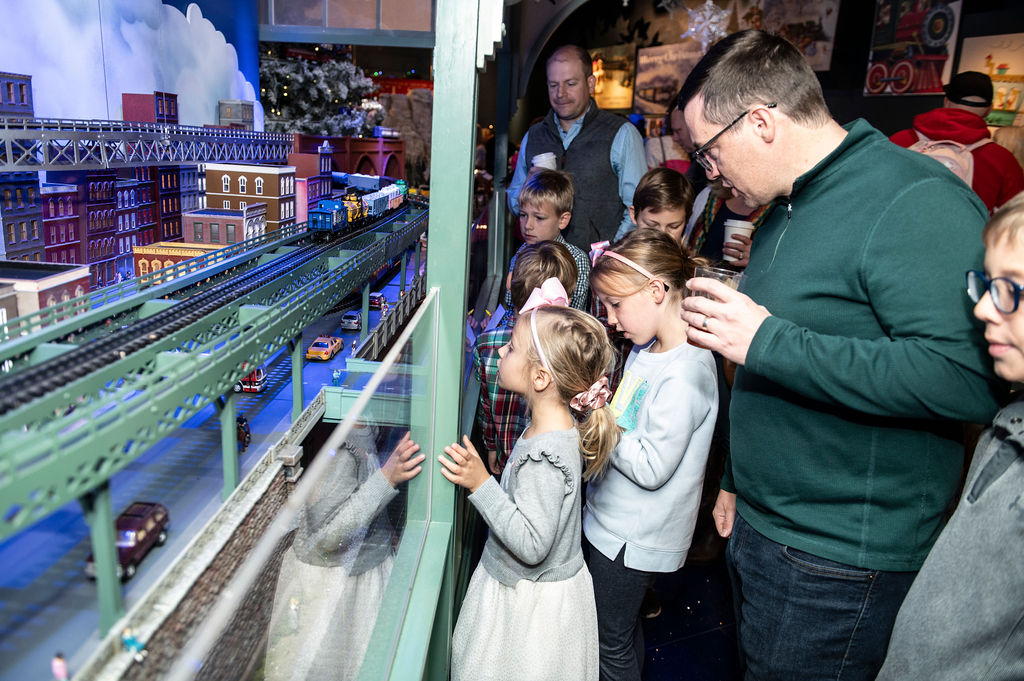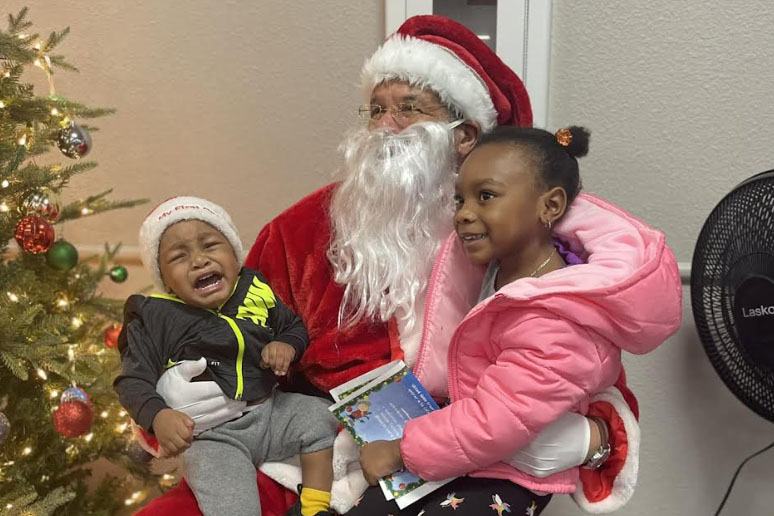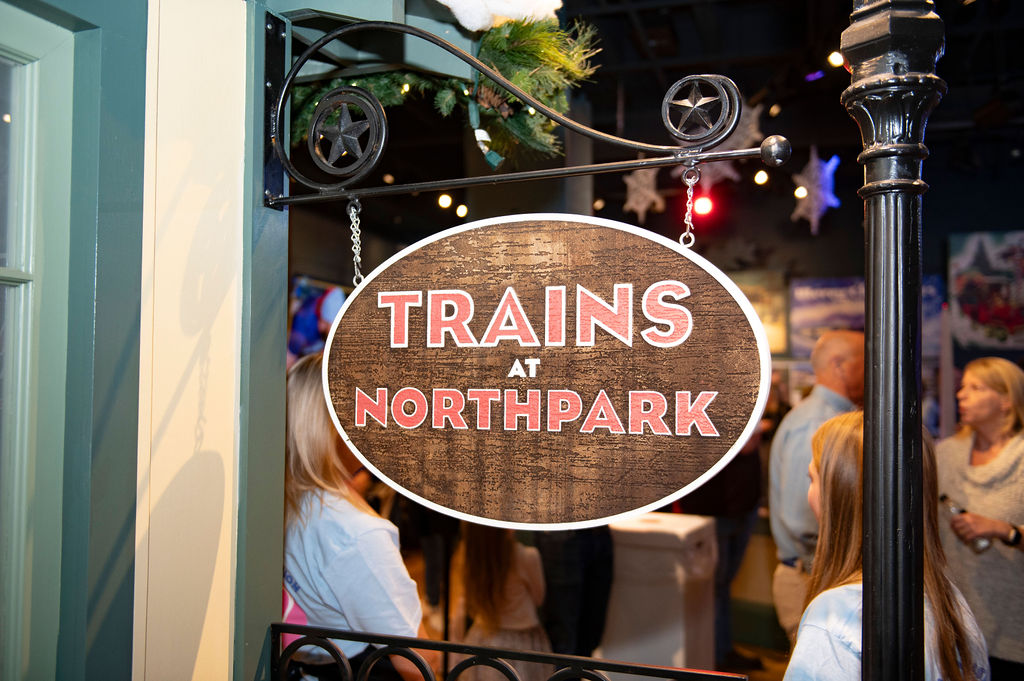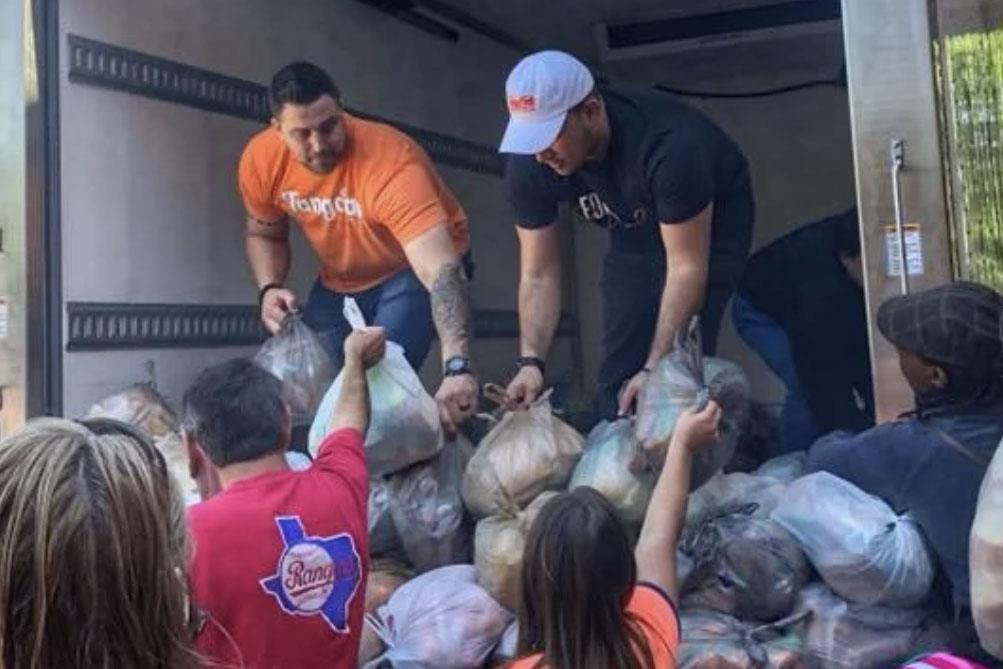Making spirits bright

It was rainy and wet, just before 8:00 a.m., but a line wrapped around the building.
Near the front, there was a woman and her three kids. Two of them were crying.
About to walk into work that morning, the food pantry opening in a few minutes, director of development Tiffani Davis made a pit stop. She grabbed a few toys and brought them to the kids.
The woman started bawling.
“I felt the Lord work in my heart,” Davis said. “It looked like I brought [the kids] gold. But me saying hi — something as simple as that — proved I cared.”
Along with their food pantry, CCA hosts a Christmas Cheer event Dec. 12–14 that provides gifts to approximately 1,200 kids, along with multiple events throughout the year. They have close to 14,000 shifts a year, covered by about 4,000 volunteers.
“We are a frontline agency,” Davis said. “That means we offer services that are necessities. If someone is hungry, that’s a crisis.”
The charity started in 1973, when seven friends got together for a Bible study and “felt the calling of Jesus.” They began collecting canned foods in their garage, all volunteer driven with a $0 budget. Now, they spend up to $10 million with a staff of 30.
“Most people in Flower Mound did not think it existed in their town,” Davis said. “Their eyes were blind to it, but God opened up our founders’ eyes. Fifty years later, we’re still here and helping our neighbors in need.”
Within the first week of every month, CCA runs out of funding for financial assistance to help people pay their rent and mortgages. The charity has to turn away those who come in until the next month begins. Davis said that this is due to a decrease in donations, compared to the increase they saw during COVID-19.
“Everybody was willing to help nonprofits because it was during a crisis,” Davis said. “Now, people think that it has died down, but it hasn’t. People still need jobs, they still need food and they still need help.”
Volunteers can help in the food pantry, where they will stock shelves, cashier or greet customers. Specifically at Christmas Cheer, volunteers can sort or wrap gifts, pray with clients and pass out treats.
“Every child should experience the joy of Christmas,” Davis said. “Most of the children we serve have had to wake up every Christmas morning without a gift — without anything. We try really hard to fix that.”
Trains lined the wall in a journey through America — New York City, the Golden Gate Bridge, Washington D.C. and Dallas, complete with a miniature State Fair. Families and groups of friends walked around, every ticket and train another dollar in the pocket of the Ronald McDonald House Charity (RMHC).
Open every day Nov. 11 – Jan. 5, the Trains at NorthPark is a charity that admits people for $5–10 tickets and sells trains. All proceeds go to RHMC.
“It’s kind of the only fundraiser of its type,” manager of special events Caroline Hamilton said. “Most of the people that come to the trains are families. It’s a cycle — families helping families.”
The event brings in half the operating budget for RMHC. This year, their goal is $1 million. Families can purchase a train until Dec. 13, where they can pick it up or have it mailed to them after the exhibit closes. More than 50,000 people visit each year.
“It’s an incredibly curated sort of thing,” Hamilton said. “It’s specific, both to Dallas and the families that live there. Every family is represented by all the train cars.”
NorthPark Center hosts a space for the trains every year. For the first time in three years, they received a new, larger space. To fill up the room, RMHC is setting up pieces that have not been displayed in years, along with a new gingerbread house and family.
“Everyone [is] really excited to see the exhibit,” Hamilton said. “We have a lot of people that come year after year, but even people that have been coming for decades told me that it feels revitalized and refreshed [this year].”
The Trains at NorthPark have 1,200 volunteers a season. There, a person collects tickets, sells merchandise and greets customers.
“It appeals to all age groups,” Hamilton said. “Teenagers come in and love it. Toddlers are all fascinated by it. People will come in and ask, ‘What is this about?’ It’s really special that we’ve been able to introduce our organization to so many new people through the trains.”
It was a mission trip in 2008 that changed his life.
He went to the poorest city in the Dominican Republic, then dove into research about the hunger and poverty in the heart of his own town. Nick Marino, executive director of Tango Charities, knew he had to do something.
“I made it my personal mission — my purpose — to create opportunities and ways for people to come together,” Marino said. “I knew I needed to make an impact.”
Hosting Feed the City events in different cities every Saturday, Tango Charities feeds over 650,000 people a year. Their goal is to feed one million.
“We educate people at every event,” Marino said. “We tell them about the hunger crisis happening in their own communities — we empower them.”
Hosting about 92,000 volunteers with over 1,312 events a year, Tango Charities is volunteer-run and operated; they don’t pay a single salary. They go to the same city, the same Saturday of every month. All food is sent to partner organizations, where it will be distributed.
“We’re the ‘Middleman of Hunger,’” Marino said. “We bring people together [and] help put food on the shelves of our partner organizations. We are not a food pantry or a soup kitchen — we give everything to other charities, and they give it to those in need.”
Volunteers can find what to bring on the Tango Charities website. Often bread, meat, cheese and chips are needed. Ingredients cost $12–15.
“It’s been nice to hear the stories of what [the event] sparks and the lives it changes,” Marino said. “Friendships have been made and couples have gotten closer. This charity has legs well beyond my belt. it’s not just me anymore, and I am thankful every day for that.”
Volunteering increases by 50% every November and December. Marino and his team coined the term “Holiters” to describe them.
“Hunger doesn’t just end on Jan. 1,” Marino said. “Hunger is a year-round thing and we need to fight it every day. Volunteers are the only way we can do that.”





